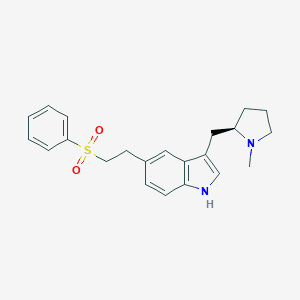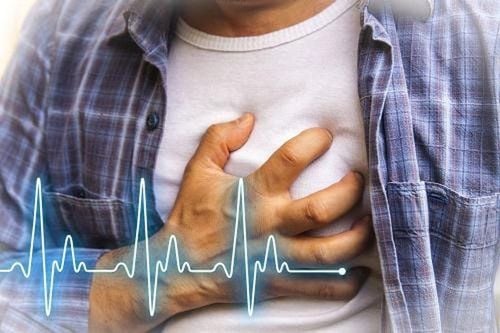This is an automatically translated article.
Article by Master, Doctor Mai Vien Phuong - Gastrointestinal endoscopist - Department of Medical Examination & Internal Medicine - Vinmec Central Park International General Hospital.
There are many causes of dizziness and nausea, for example due to affected cardiac output, a consequence of migraine or from excessive anxiety... Dizziness and vomiting will usually go away without needing. treatment, but you should seek medical attention if vomiting or bloody stools, unconsciousness, or symptoms do not improve within 2-3 days.
1. Overview
Dizziness is a condition that occurs when you feel dizzy, weak or physically unsteady. Some people may feel as if the room is spinning around them.
Vomiting occurs when stomach contents travel up from the stomach to the esophagus and out of the mouth. Vomiting can be intense and painful. Chronic vomiting can damage teeth and the delicate lining of the esophagus and mouth, because vomit is highly acidic.
2. What causes dizziness and vomiting?
Causes of dizziness and nausea include:
Affected cardiac output: When your heart is not working properly, your blood pressure can drop. This can lead to dizziness and vomiting. Anxiety: Feelings of intense anxiety can lead to physical symptoms, such as dizziness and vomiting. Inflammation of the inner ear: The inner ear is responsible for maintaining balance in the body. Inflammation of the inner ear can be the cause of dizziness and nausea. Medications: Sedatives, chemotherapy, and anticonvulsants can all cause dizziness and vomiting. Vestibular Migraines: Vestibular migraines cause symptoms of dizziness. In most cases, symptoms last a few minutes to several hours. Other common causes of dizziness and nausea include:
Dehydration, motion sickness, altitude sickness Meniere's disease, stomach and duodenal ulcers Low blood sugar Ingesting poison or breathing in toxic chemicals Harmful SARS (severe acute respiratory syndrome) Beriberi abdominal aortic aneurysm, epidural hematoma, post-shave poisoning, carbon monoxide poisoning Marine animals bite or burn Acoustic neuroma Addisonian crisis ( acute adrenal crisis) isopropyl alcohol poisoning, convulsions, alcoholic ketoacidosis Benign postural dizziness Toxic shock syndrome, autonomic neuropathy Endometriosis, morning sickness Crowphobia Caffeine overdose Viral gastroenteritis

Low blood pressure : Especially evident when getting up too quickly after sitting Low blood sugar: Yes This can happen if your child has diabetes, is active or hasn't eaten for several hours Food poisoning : Can cause vomiting, diarrhea and lead to dehydration if the child does not drink enough fluids Dehydration: May be caused by not drinking enough fluids. consume enough fluids during the day In more severe cases, these symptoms can be caused by:
Central nervous system problems, intracranial processes or the presence of too much fluid in the brain Inner ear problems, which can cause loss of balance, leading to dizziness and vomiting Heart disease, such as heart attack or stroke which can cause dizziness and vomiting Internal bleeding, can May result from bodily injury and leads to dizziness, vomiting due to blood loss Ingestion of poisons or inhalation of toxic chemicals Nerve, joint, muscle or sensory disturbances, may result in loss of balance dizziness and disorientation, causing dizziness, vomiting Certain drugs used to treat mental disorders 4. Dizziness and vomiting in pregnant women Morning sickness : Dizziness and vomiting can affect a number of pregnant women. In many cases, these symptoms are the result of morning sickness and are not cause for concern. Morning sickness can occur as early as three weeks after conception. It is the result of increased levels of the hormones estrogen and progesterone in the body. These hormones cause the stomach to empty more slowly. Dilated blood vessels: The blood vessels in the body also dilate and blood pressure drops during pregnancy, causing dizziness. Pregnant women should avoid prolonged standing and get up slowly after lying or sitting to avoid dizziness. If you feel dizzy while standing, lie on your left side. Ectopic pregnancy: In some cases, dizziness and vomiting during pregnancy can be a sign of a problem. If you have severe dizziness with abdominal pain or vaginal bleeding, you may have a serious condition called an ectopic pregnancy. In the case of an ectopic pregnancy, the fertilized egg will implant itself outside the uterus. If left untreated, this condition can be life-threatening.
5. When to seek medical help? Call emergency services or have someone drive you to the hospital if you think you are having a heart attack or stroke. See your doctor if you are pregnant and these symptoms affect your ability to eat, drink, or sleep. Dizziness and vomiting will usually go away without treatment, but you should seek medical attention if you vomit and have bloody stools or are unconscious. Seek medical attention if your symptoms do not improve within 2-3 days. Seek medical attention if your symptoms are accompanied by fever, vision or hearing changes, weakness/numbness/tingling in hands and feet.

6. Diagnosing the cause of dizziness and vomiting Your doctor will try to determine the cause of your dizziness and vomiting by asking the following questions:
Are you taking any new medications? Have you experienced these symptoms? When did your symptoms start? What makes your symptoms worse or better? After taking the medical history, the doctor will conduct a physical examination. If you're pregnant, your doctor will do a pelvic exam to check for problems with your reproductive system.
Your doctor may also ask you to do some of the following tests:
Blood tests to check blood cell counts and blood electrolyte levels Liver function tests, to rule out dehydration and infection Urinalysis, to check the levels of various chemicals in your urine to check for dehydration Diagnostic imaging. 7. How to treat dizziness and vomiting? Treatment will depend on the cause. For some less serious causes, your doctor may prescribe antiemetics or medications used to treat vomiting.
Meclizine (Antivert) is prescribed to treat dizziness. This medication is used to treat motion sickness, nausea, and dizziness. If you are prone to motion sickness and plan to travel, your doctor may prescribe a scopolamine patch (Transderm Scop). This method is only suitable for adults.
If you are taking a new medication, do not stop using it unless your doctor tells you to, even if you suspect it may be related to dizziness and nausea.
If you are dehydrated, your doctor will prescribe fluids. If dehydration is severe, they may use intravenous (IV) drip.
8. Home care You should rest, drink enough water and eat foods that do not irritate or upset the stomach when dizzy, nauseous. The following foods should be eaten:
Broth Crackers Dry toast Oatmeal porridge Pudding Refined cereals Avoid the following factors that can worsen dizziness, nausea:
Food Food and cooking smells Perfume Smoke Stuffy room High Temperature Flashing lights Lie down when you start to feel dizzy and nauseous. After symptoms subside, get up slowly to avoid making symptoms worse.
9. Preventing Dizziness and Vomiting You can prevent dizziness and vomiting caused by low blood sugar by eating regular meals and avoiding taking too much insulin. If you have motion sickness, avoid sailing and always sit in the front seat of the vehicle. You can also use motion sickness bracelet or take motion sickness medicine. Avoid any foods that upset your stomach or foods to which you are allergic. When eating should eat slowly and rest after eating. Eat several small meals a day instead of three large meals to reduce pressure on the digestive system. Make sure you stay hydrated at all times; Drink at least six to eight 8-ounce glasses of water each day. When you feel nauseous, consume small amounts of clear, sweet liquids like sports drinks or ginger ale. Avoid eating solid foods when you are nauseous. Lie down and rest until you feel better. In summary, there are many causes of dizziness and nausea, such as impaired cardiac output, a consequence of a migraine or excessive anxiety... Dizziness and vomiting will usually go away without delay. No treatment is needed, but you should seek medical attention if vomiting or bloody stools, unconsciousness, or symptoms do not improve within 2-3 days.
Please dial HOTLINE for more information or register for an appointment HERE. Download MyVinmec app to make appointments faster and to manage your bookings easily.
References:Dizziness, vertigo, disequilibrium. (n.d.). vestibular.org/about-vestibular-disorders/causes-dizziness Mayo Clinic Staff. (2015). Dizziness. mayoclinic.org/diseases-conditions/dizziness/basics/definition/con-20023004 Mayo Clinic Staff. (2017). First trimester pregnancy: What to expect. mayoclinic.org/healthy-lifestyle/pregnancy-week-by-week/in-depth/pregnancy/art-20047208 Mayo Clinic Staff. (2017). Nausea and vomiting. mayoclinic.org/symptoms/nausea/basics/definition/sym-20050736 Nausea & vomiting. (two thousand and thirteen). my.clevelandclinic.org/symptoms/nausea/hic_nausea_and_vomiting.aspx














